My anxiety is higher than Pete Townshend at art school
Don't wanna be here? Send us removal request.
Text
*What’s this conversation are they flirting again my brain was overloaded🥴
Roger: We caught them fiddling with our equipment. So that’s what goes on when we are off, Pete. They were fiddling.
Pete:It was this ironic again? I wish somebody was fiddling with my equipment
Roger:(hysterical laughter)
Pete:You were. But you haven’t got as much equipment as me
Roger:Probably not
32 notes
·
View notes
Text

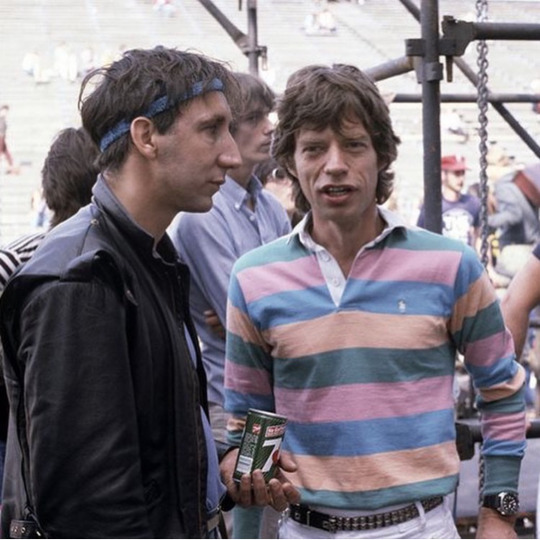

A small compilation because I think he holds cups weird
118 notes
·
View notes
Text


Glad Rag Ball, Wembley, London November 19th, 1965
28 notes
·
View notes
Text

Pete talking about the four parts of one character in his band mates during the making of Quadrophenia
31 notes
·
View notes
Text
This is me I’m the mutual
Me and my mutual are working on a project/Doujinshi currently. Its still in its rough drafts for now. Here's the front page for it


70 notes
·
View notes
Text
Get Back Rewatch 55 Years On: Day 17
George is so sweet to put so much effort into helping Ringo write his song and to not ask for any kind of writing credit. Do unto others as you would have them do unto you, right? But also, I’d do that for Ringo too if I were him. Ringo deserves it for everything he’s given to that band and the little credit he’s received.

“What am I playing, Richie?” “You’ll be on drooms.” If the Beatles know how to do one thing, it’s be cute.
John, stop talking about Paul’s strong arms, you're embarrassing yourself.
I do have to just include this here. From my Get Back book. I never heard, “was it sexually oriented?” on the nagra reels, but apparently that’s what Peter Jackson’s cleaned-up version gave him, and again, he was like, “hmm. Too gay.”

He’s known Heather for how long? Less than a year, right? But if somebody had showed me just this footage and told me he’d raised her from a newborn, I would not blink an eye. That kind of tired but fond interaction is exactly how a dad plays with his kid. And she’s climbing all over him and bossing him around like he’s never not been in her life. It’s beautiful.
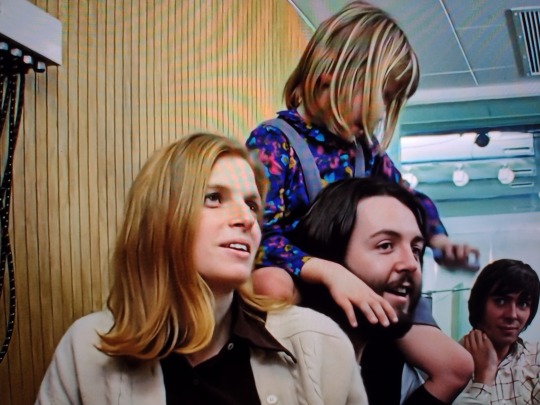

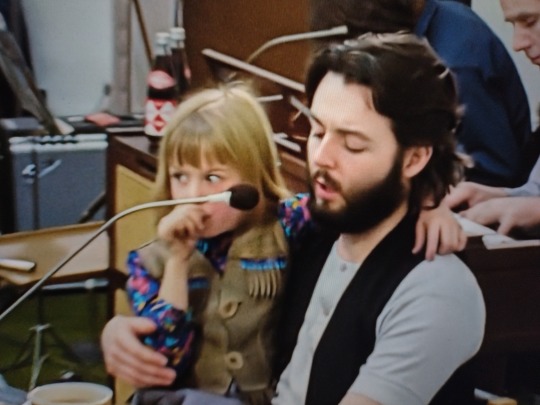
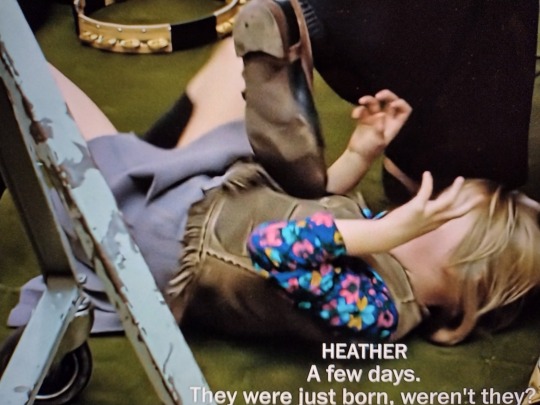
And John, with his “are you going to eat them?” is the perfect sort of bad-example favorite uncle. The kind that would check her out of school when she’s older and go get her ears pierced when her dad had said she was too young.
Sorry, I promise I’m not just going to be thirsting over dad Paul this whole time. I have to just make one thing clear, and this is the only thing I’ll say on the subject and then I’m done. If a man is a 3 and a good dad, he’s a 10. Paul was already an 11, so I’m literally just done-for. Okay, I’ll shut up.
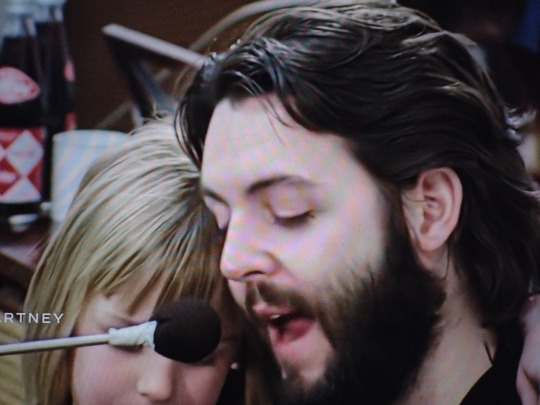
John and Paul doing their usual thing, only paying attention to each other. Talking about an Elvis gospel ending for Let it Be. George, smirking, stands up: and we’ll all kneel as you do it. If John had said it, Paul would be in stitches. But George said it, and he might as well have never opened his mouth for all the notice he gets. And it’s honestly heartbreaking, if you can take your eyes off of the insanity of John and Paul’s weird eye-contact, to watch George’s face go from excited at his own wit and hopeful for a laugh to just completely downcast. Twelve years of that. Twelve years.
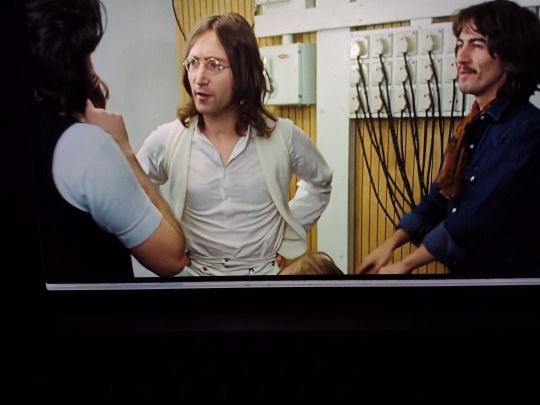
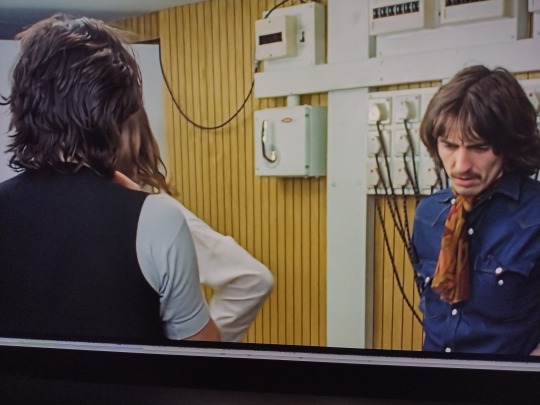
Ringo, you’re an absolute saint. He’s being so sweet to Heather, even letting her mess with his symbols, and then Paul has the audacity to tell him to “keep it lighter.” Like. Paul. Do you think that maybe the fact that he’s got a five-year-old over there “helping” him might have anything to do with how the drums are coming out? Just a thought. Anyone else would at least have something to say about it. Ringo just sort of nods along but he looks SO tired.


TFW you’re inspiring the next generation of women to be loud and free and take up space.
“Dig it” is actually insane to me. I know I’m crazy, but remember those twin dreams they had about buried treasure when they first met? “If you want it, you can dig it up.” ???
When George and Paul just jump into harmonizing together when they’re talking about The Long and Winding Road arrangement? Their voices are like magic together. I wish they would’ve had George sing that part in the final thing, actually.
283 notes
·
View notes
Text
"John tried to smooth the way for George by telling Mimi what a great guy he was before she ever met him, but once Mimi got a look at his pink shirt, she threw him out the door," reads TLYM.


502 notes
·
View notes
Text
The Beatles and Dysfunctional Family Roles
Humans are social animals. When one lives in a group, each has a part to play. A role in this great play that is life, if you will.
All the worlds a stage,
And all the men and women merely players:
They have their exits, and their entrances;
And one man in his time plays many parts.
— William Shakespeare, As You Like It, Act II, Scene VII.
These sets of adequate behaviors are determined by the expectations of everyone around us, eventually becoming internalized through socialization. This means that the role we play is also context-dependent, and should change and adapt according to different times and spaces. It’s only when we become too fixed in certain dynamics that there is a problem.
Humans are master profilers. We have to quickly know what role our scene-partner is playing, after all. Furthermore, we also have a tendency to generalize. To forget that these are merely parts and others and ourselves are much more complex than the character they present at any given situation.
Thus, humans are masters at creating tags (long before the ‘hash’ prefixed it). Each Beatle member has been attributed, from their very first days under the public gaze, a very specific part: the Smart One, the Cute One, the Quiet One and the Funny One.
Like most labels, they are informative to a degree, which becomes limiting when one assumes that’s all there is to know. And even though there were infinitely complex individuals behind these fan nicknames, it’s curious how even within the band, in the privacy of their hotel rooms, these four young men fell into a very structured dynamic with very specific roles (which with time became stifling).
But it is wise to remember that the Beatles were more than a band.
They were a family.
This was something that they always identified with very keenly. They were brothers. (Of course, on top of this dynamic, John and Paul had the added complexity of also feeling like they were married.)
But for now, let’s look upon them as the children that they were: four brothers in one big adventure. It probably pays to follow their self-denomination and examine what part each member played in this dynamic. And because I used the word “dysfunctional” in the title, let’s first establish what it entails.
One of the main distinguishers between healthy and dysfunctional family dynamics is just how fixed these structures are.
In any given family the individual members fulfill and act out roles….
While in healthy, functional families these roles are generally fluid, change over time, in different circumstances, at particular events and are age and developmental appropriate, in dysfunctional families the roles are much more rigid.
In a healthy family members are integrated and various parts may surface at different times at no threat to the family system. In functional families the roles are interdependent.
The various roles in a healthy family are parts of every person….
Healthy families in general retain functionality when individual members ‘leave’ the family system through ‘moving out’, starting their own families or even death of an individual member.
By contrast,
In dysfunctional families the roles are almost a form of continuity or stability of the family system, stifling development….
Members must submerge parts of their personalities and take on a role so they are less of a threat to the family system that must be kept in place. In the case of a dysfunctional family all the roles are characterized as co-dependent.
In a dysfunctional family each member takes a role, and/or is assigned one, to make up the whole which is the family. Rather than a family of fully (yet age appropriate) persons, the family system gears to create just one: the family itself.
In dysfunctional family systems when an individual member leaves, this creates an (almost) irreparable hole in the existing system… This is why dysfunctional families are often so enmeshed. The system needs all members to function as a unit, not as a community.
— “Healthy vs Dysfunctional Family Roles”, Out Of The Storm.
It displeases me to dish out a diagnosis, for the line between healthy and unhealthy is often quite subtle.
But it’s hard not to argue that at times the Beatles tended towards the rigidity of a dysfunctional family. They have the resulting tensions and fallouts to prove it. Just the simple premise that the stability and continued existence of the family unit (the band) was more important than the wants and needs of its individual members is a sign of how prone they were to imprisoning themselves for the good of the whole.
In 1981 Weischeider identified five archetypes that children are assigned, originally relating to her work with alcoholic families. Since then the terms have evolved to cover other types of dysfunctional family systems: including the presence of other kinds of addictions; untreated mental health illnesses; sexual or physical abuse; fundamentalism or rigid dogmatism.
But what are these Dysfunctional Family Roles?
The Golden Child (The Hero)
This family member devotes his/her time and attention to making the family look “normal” and without problems. The Hero can mask or make up for the dysfunctional home life. Over-responsible and self-sufficient they are often perfectionistic, are over-achievers and look very good - on the outside. The parents look to this child to prove that they are good parents and good people. Their goal in life is to achieve “success”, however that has been defined by the family; they must always be “brave and strong”. The Hero’s compulsive drive to succeed may in turn lead to stress-related illness, and compulsive over-working. They learn at a young age to suffer the sadness of a parent and become a surrogate spouse or confidante.
While The Hero saves the family by being perfect and making it look good, the golden child may struggle to live up to his status. In a Narcissistic Personality Disordered (NPD) family, The Golden Child is the recipient of all the narcissistic parent’s positive projections, and is their favourite child. The golden child is usually victim of emotional and (covert) sexual abuse by the narcissistic parent. (S)He is also witness to, and sometimes takes part in, the other children’s abuse. Many specialists believe that witnessing your sibling’s abuse is as damaging as receiving it.
The Caretaker (The Enabler)
Another descriptive word for this type of codependent family role is “the Caretaker.“ This is also a role a child can fulfill, especially in case the other parent/caregiver has not resigned to enable the dysfunctional Addicted or Narcissististic parent. The Enabler feels like they have to keep the family going. Over and over they take on the addict’s problems and responsibilities.
The Enabler is the martyr of the family, and often supports not only the dysfunctional behavior, but also a prime enforcer of the codependent roles that everyone else is required to play.
You often see this role in a family where the functioning of (one of) the parent(s) is impaired in some way, i.e. mental illness, substance abuse or a medical disability. This child will attempt function as the surrogate parent. They worry and fret, nurture and support, listen and console. Their entire concept of their self is based on what they can provide for others.
The Enabler protects and takes care of the problem parent so that the parent is never allowed to experience the negative consequences of his or her actions. The Enabler feels he or she must act this way, because otherwise, the family might not survive. The paradoxical thing about The Enabler’s behavior is that by preventing the dysfunctional parent’s crisis, he or she also prevents the painful, corrective experience that crisis brings, which may be the only thing that makes the dysfunctional parent stop the downward spiral of addiction…
[Note: The Caretaker is often the “intra-familial counterpart” of The Golden Child, which can overlap and be played by the same person.]
The Problematic Child (The Scapegoat)
The Scapegoat is the “problem child” or the “trouble maker”. This family member always seems defiant, hostile and angry. The Scapegoat is the truth-teller of the family and will often verbalize or act out the “problem” which the family is attempting to cover up or deny. This individual’s behavior warrants negative attention and is a great distraction for everyone from the real issues at hand. The Scapegoat usually has trouble in school because they get attention the only way they know how - which is negatively. They can be very clever, may develop social skills within his or her circle of peers, and become leaders in their own peer groups. But often the groups that they choose to associate with are groups that do not present healthy relationships. The relationships he or she experiences tend to be shallow and inauthentic.
The Scapegoat is sacrificed for the family. The Scapegoat will be the “identified patient”. Scapegoats come in many different flavors, but two common ones are: 1) the picked, weak or sick child; or, 2) the angry, rebellious problem child who is constantly getting into conflicts. They are often self-destructive, cynical and even mean.
In an NPD family, The Scapegoat, or no good child is the recipient of the narcissist’s negative projections. They can never do anything right. The name ‘rebel’ implies that the child has chosen this role, which is debatable. The Scapegoat is usually victim of emotional and physical abuse by the narcissistic parent.
The Quiet One (The Lost Child)
The Lost Child is usually known as “the quiet one” or “the dreamer”. The Lost Child is the invisible child. They try to escape the family situation by making themselves very small and quiet. (S)He stays out of the way of problems and spends a lot of time alone. The purpose of having a lost child in the family is similar to that of The Hero. Because The Lost Child is rarely in trouble, the family can say, “He’s a good kid. Everything seems fine in his life, so things can’t be too bad in the family.”
This child avoids interactions with other family members and basically disappears. They become loners, or are very shy. The Lost Child seeks the privacy of his or her own company to be away from the family chaos. Because they don’t interact, they never have a chance to develop important social and communication skills. The Lost Child often has poor communication skills, difficulties with intimacy and in forming relationships. They deny that they have any feelings and "don’t bother getting upset.” They deal with reality by withdrawing from it.
In an NPD family, The Lost Child just doesn’t seem to matter to the narcissist, and avoids conflict by keeping a low profile. They are not perceived as a threat or a good source of supply, but they are usually victim of neglect and emotional abuse.
The Clown (The Family Mascot)
The goal of The Family Mascot is to break the tension and lighten the mood with humor or antics. (S)He is usually “the cute one.” This child feels powerless in the dynamics which are going on in the family and tries to interrupt tension, anger, conflict, violence or other unpleasant situations within the family by being the court jester. The Mascot seeks to be the center of attention in the family, often entertaining the family and making everyone feel better through his or her comedy. They may also use humor to communicate and to confront the family dysfunction, rather than address it directly. They also use humor to communicate repressed emotions in the family such as anger, grief, hostility or fear. This behavior is lighthearted and hilarious, just what a family twisted in pain needs — but the mascot’s clowning is not repairing the emotional wounds, only providing temporary balm. The rest of the family may actually try to protect their “class clown”. The Mascot is often busy-busy-busy. They become anxious or depressed when things aren’t in constant motion. The Mascot commonly has difficulty concentrating and focusing in a sustained way on learning, and this makes school or work difficult. (Hence they also referred to as “The Slacker”.)
They often have case loads rather than friendships - and get involved in abusive relationships in an attempt to “save” the other person. They have very low self-worth and feel a lot of guilt that they work very hard to overcome by being really “nice” (i.e. people pleasing, classically codependent) people.
— “Dysfunctional Family Roles”, Out Of The Storm.
Since then a sixth type is sometimes also considered:
The Manipulator (The Mastermind)
The Manipulator takes their experience of their hostile environment and uses it to their advantage. They capitalise on the family situation and play family members against each other. This individual will quickly become adept at recognising what the actual problem the parent suffers from. They’ll understand which one is the enabler, and which one is co-dependent.
Manipulators exercise this knowledge to control and influence family members. They’ll do it covertly, not directly. They never want to get caught. Gradually, they’ll learn what triggers the parents and their siblings and they will take shots at all of them…
Manipulators can turn into bullies, those who harass people and get a kick out of it. They are unable to form healthy relationships. If they are in one, they will be controlling with a partner who has low self-esteem.
They will only think of themselves and what they can get out of others. They feel that the world owes them for their lousy childhood and will go about getting it by any means.
— “6 Dysfunctional Family Roles People Take without Even Knowing”, Learning Mind.
Keep reading
90 notes
·
View notes
Photo
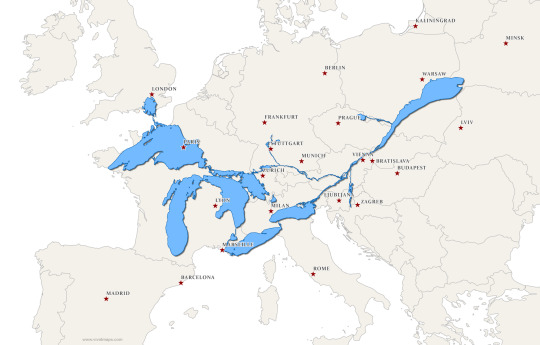
The Great Lakes and Saint Lawrence River superimposed on a map of Europe
107K notes
·
View notes
Text
McHarrison and my obsession for Mcbeardy (projrcting it on George lol)
@cherriiramen this was what Ive been telling you about btw
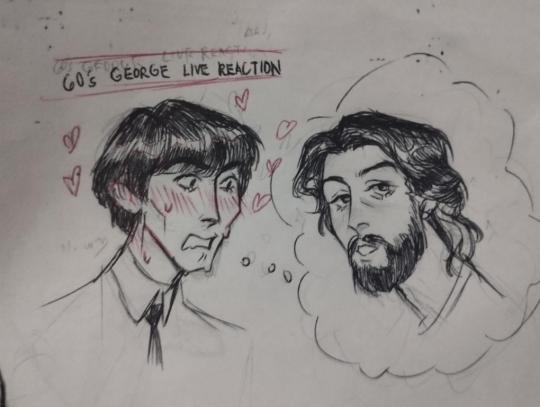
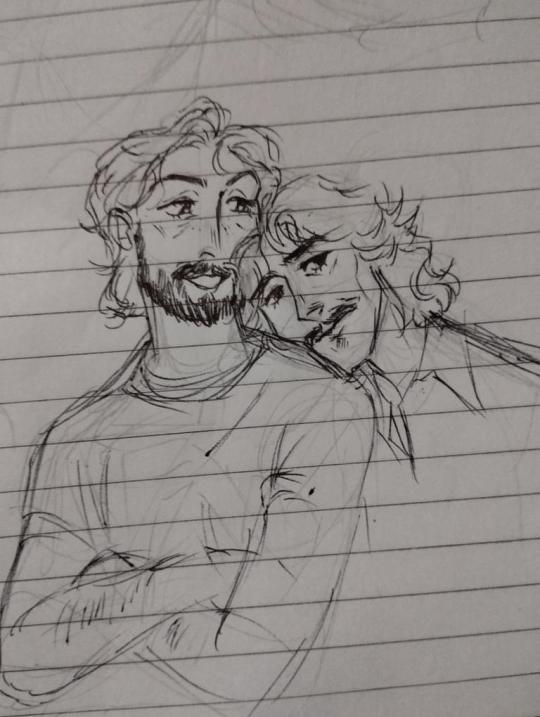

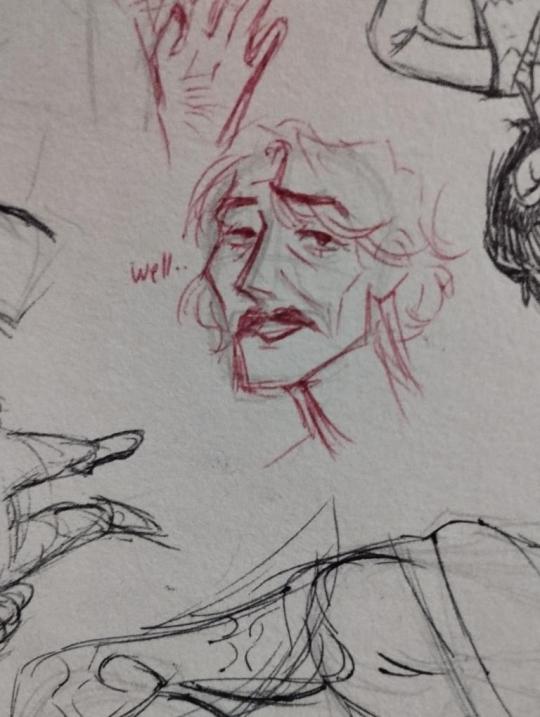
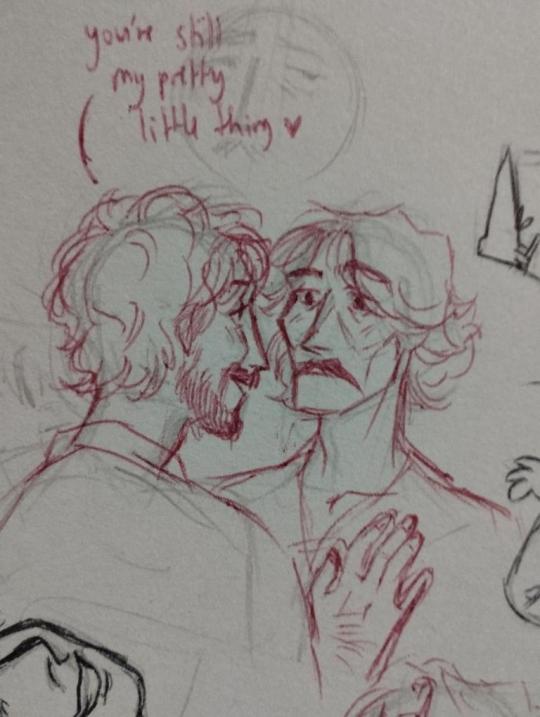

Based on one fic I read here on tumblr
370 notes
·
View notes
Text










the day i stop drawing mcharrison is the day i die
97 notes
·
View notes






















